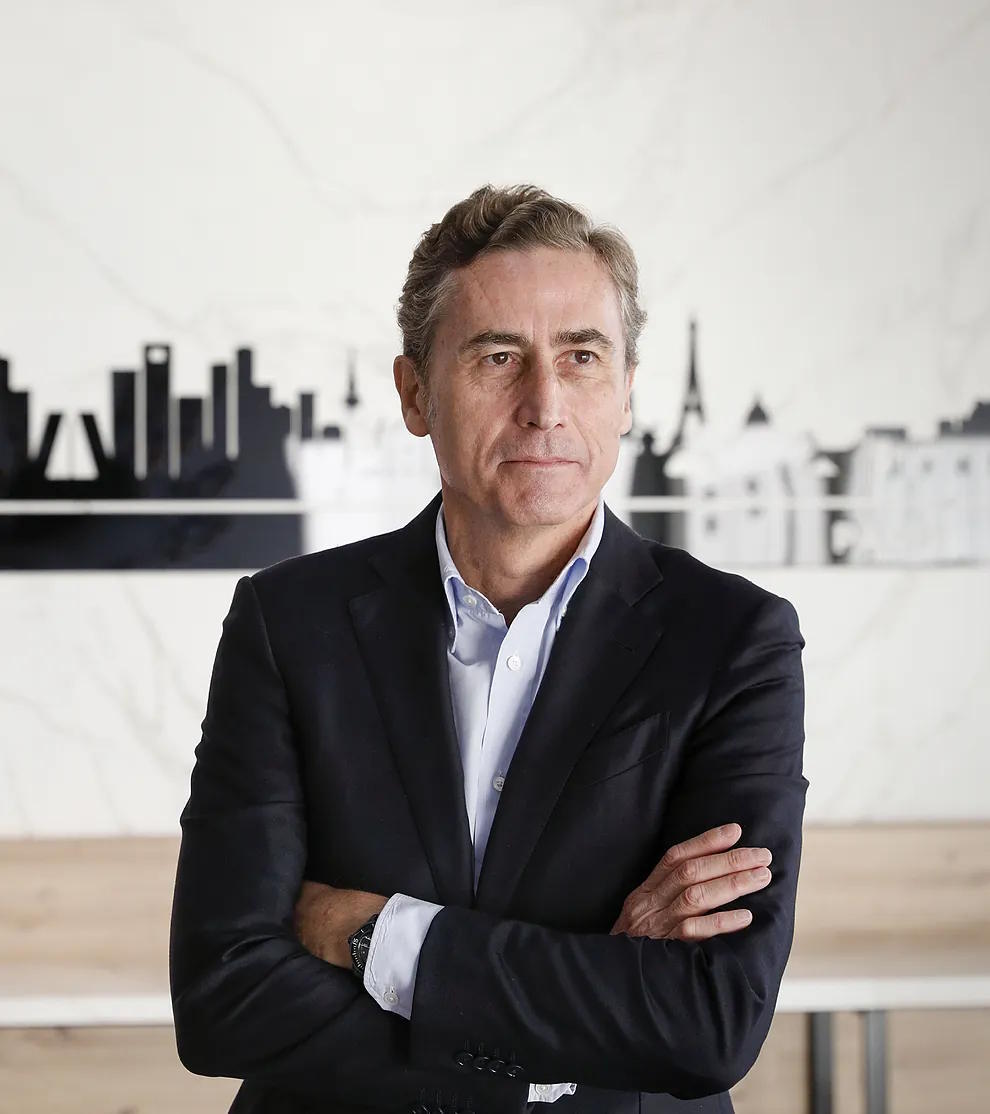In 1971 L'Oréal launched its dye Préfèrence to the market, priced 10 cents higher than its competitors, which was a problem in a complex economic moment for the consumer, as almost all are. And to Ilon Specht, a 23-year-old creative advertising professional from McCann-Erickson, came up with a solution: the value was not so much in the product itself but in the self-esteem it generated for the buyer, women. Thus was born the now legendary slogan Because I'm worth it, which has accompanied L'Oréal ever since, the largest cosmetics company in the world.
This week, the cosmetics and beauty industry in Spain presented a report to highlight its contribution to the economy, a sort of sectorial Because I'm worth it, driven precisely by L'Oréal. Its CEO in Spain and Portugal, Juan Alonso de Lomas, asserts in this interview with Actualidad Económica that the beauty sector should not be trivialized just because it has a hedonistic function, it does much more than that, and, to begin with, it already generates 1.03% of the entire Spanish GDP. For every direct job at L'Oréal, he points out, another 17 are created in the country.
Draghi himself misses agility when implementing his measures...
We are slow, yes. In the current geopolitical context, it is a great opportunity for Europe: to unify the market, simplify our regulations, gain agility, and allow the European industry to be much more competitive. Especially in our case, the cosmetic industry, where five out of the seven major global groups are European. It would be a shame if they negatively impact the competitiveness of our beauty and personal care industry.
Had the EU been too ambitious in its green objectives?
The foundation and the objective are good. In fact, we have also launched our new sustainability program, L'Oréal for the Future, with goals for 2030. I believe that companies have an obligation and a commitment to improve the world we live in. That being said, when there is overregulation and a lack of understanding of the impact of certain decisions, it becomes detrimental to the industry, as well as to the consumer. The example I mentioned earlier about lavender, for instance. Our chief scientist always reminds us: you say that water is not bad, and it isn't, but if you drink five liters, you die. There is a lack of knowledge and understanding of the impact when new laws and regulations are made. I wouldn't say with bad intentions, there is always a good intention behind it, but without understanding the economic impact, on employment, society, or competitiveness.
Regulation drives changes. Your industry, for example, faces the challenge of controlling overproduction.
We obviously try to adjust production to consumption. And I believe that technology will help us to be even better. Okay, sooner or later laws will be passed to prohibit the destruction of a product, but as always, we are anticipating them.
In what ways? In every way. First, in prevention: by improving demand planning. Second, in consumer education. And this is an important part: we have to be very transparent with the consumer. And, on the other hand, seeking alternative channels: for example, creating outlets in some European countries; opening online channels called Friends and Family to offer great discounts on products; and working closely with our clients to forecast, allowing us to find alternatives in the value chain.
How far do you think AI will go?
We see it as a great opportunity. We have been using it for some time now, and it helps us mainly to increase productivity. We believe in it so much that we have 8,000 digital experts working in the company. We think that if we can increase productivity in tasks that add little value, our employees will be able to focus on tasks that truly add value. However, always with our ethical code for artificial intelligence. We are very scrupulous in that aspect.
What does it require from you?
First, it helps us ensure that there are no issues with image rights from a content perspective. We also do not use artificial intelligence, for example, to show our consumers any product benefits that are not real.
You mentioned earlier the export of talent from Spain. But do you find it difficult to hire certain profiles? Is there, as they say, a talent crisis?
Well, no. We are fortunate to have low turnover. We conduct internal surveys every year, and our engagement levels are above 80%, which is very high within the industry. We also provide a lot of training and ensure that all our employees continue to develop and acquire the skills we believe we will need in the future. And of course, we strive to make the company attractive: salaries, benefits... There are always some profiles that are a bit harder to attract, the market is very competitive, but so far, we have succeeded.
Christine Lagarde has already declared the end of the disinflation cycle after a crisis that has led to significant price increases. What do you see for the future?
We do not pass on the full inflation to the consumer. We accelerate innovation, and if a price increase is necessary, we ensure that the consumer perceives added value. In the future, we think the same way: the only way to bring value to the consumer is through innovation and making sure they are willing to pay a little more because there is added value. Consumers are becoming more educated, there is more competition and offerings, and the company truly aims to continue innovating and making that innovation tangible and perceived.
